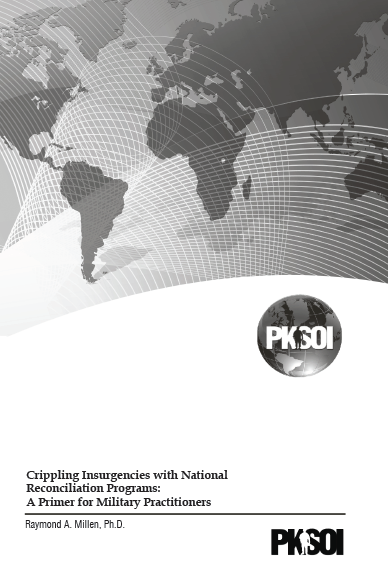Crippling Insurgencies with National Reconciliation Programs: A Primer for Military Practitioners

Forward
This primer on reconciliation programs serves to complement counterinsurgency strategies. While such programs require a fair amount of organization, resources, funding and manpower, the key distinction is they are predominately managed by host nation governments. This requirement means that US military and government officials must focus on advising and the provision of resources to support a reconciliation program. The purpose of this primer is to inform US advisors on the salient features of a reconciliation program. This task is by no means simple because host nation governments are unlikely to pursue a reconciliation program without US persistence and guidance.
This primer provides a methodical approach to inducing surrender among common insurgents and providing ways for them to become productive citizens. Effective reconciliation programs have the potential to shorten the length and costs of an insurgency. Such programs serve to accelerate the healing process in the midst of an insurgency. In the aftermath of an insurgency, reconciliation programs provide the requisite infrastructure for the implementation of disarmament, demobilization, and reintegration (DDR) programs. As such, reconciliation programs lay the groundwork for enduring stability in an affected country.
Scot N. Storey
Colonel, Director
US Army Peacekeeping and Stability Operations Institute
To read Crippling Insurgencies with National Reconciliation Programs: A Primer for Military Practitioners Click Here

